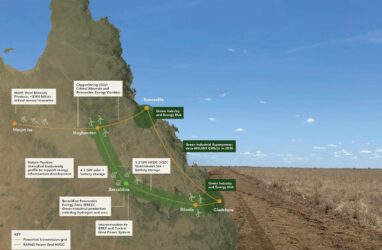Feed aggregator
China urged to introduce green public procurement for decarbonisation in steel, cement
Vietnam’s upcoming carbon market to be key to clean energy investment -report
China ETS should introduce market-based adjustment mechanism -study
Brazil’s Cerrado to lose over 26 mln ha by 2050 unless protection law targets big landowners, researchers say
UK’s net zero economy grew 9% in 2023, report finds
Green businesses and jobs are booming – in stark contrast to the national economy – but political U-turns risk future growth
The UK’s net zero economy grew by 9% in 2023, a report has revealed, in stark contrast to the 0.1% growth seen in the economy overall. Nevertheless, the report pointed out that strong future growth from green businesses was being put at risk by government policy reversals, lack of investment and competition from the EU and US.
Thousands of new green companies were founded in 2023 and overall the sector was responsible for the production of £74bn in goods and services and 765,000 jobs, according to the report by the Energy and Climate Intelligence Unit (ECIU) and the Confederation of British Industry (CBI).
Continue reading...Consortium plans Japan, Australia e-fuels value chain
Woodside buys enough ACCUs to meet more than 90% of its Safeguard obligations to 2030
Japan to certify second batch of OECMs in bid to meet biodiversity targets
CEC calls for big budget spend on renewables, and net zero grid by 2035
The post CEC calls for big budget spend on renewables, and net zero grid by 2035 appeared first on RenewEconomy.
EnergyAustralia says two four-hour battery projects competing for government contracts
The post EnergyAustralia says two four-hour battery projects competing for government contracts appeared first on RenewEconomy.
Landowners invited to host gigawatts of solar and wind along 930km “clean energy corridor”
The post Landowners invited to host gigawatts of solar and wind along 930km “clean energy corridor” appeared first on RenewEconomy.
Solar, electrification and a big battery: Report says Top End can thrive without gas
The post Solar, electrification and a big battery: Report says Top End can thrive without gas appeared first on RenewEconomy.
Antarctica provides at least $276 billion a year in economic benefits to the world, new research finds
South Australia fast-tracks 100 pct renewables target to 2027
The post South Australia fast-tracks 100 pct renewables target to 2027 appeared first on RenewEconomy.








